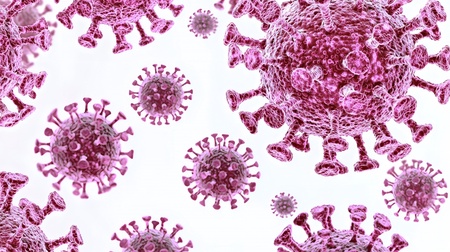Researchers from the University of Aberdeen and Aberdeen Royal Infirmary are recruiting people to take part in a clinical trial to find whether a vaccine may be able to protect adults against the symptoms caused by the norovirus stomach bug.
Norovirus is one of the most common causes of stomach bugs in the UK and there is currently no vaccine to protect against norovirus infection.
The Nova 301 Trial is looking to recruit approximately 25,000 people globally to help see if an investigational mRNA vaccine can protect people against the symptoms caused by the norovirus stomach bug
The Nova 301 Trial is a Phase 3 clinical trial. This is the last phase before an investigational vaccine can be made available for public use, following approval from the UK Medicines and Healthcare products Regulatory Agency. Phase 3 trials like this one evaluate the investigational vaccine in a large group of people.
People taking part in the Nova 301 Trial must be 18 yrs or over, be in good health and should not have a chronic gastrointestinal disease (including irritable bowel syndrome, colitis, oesophageal reflux, or any other medical condition with regular vomiting or diarrhoea).
Participants will receive either the investigational vaccine or a placebo jab (an inactive substance). The trial will last for up to 25 months, and participants must be willing to attend up to 7 scheduled clinic visits over that time.
More information is available from Nova 301 Trial team on gram.vaccinetrial@nhs.scot.
The Nova 301 Trial team will be available to support everyone who takes part in the trial. They will also make sure that participants understand the important details about the trial before agreeing to take part. This is called informed consent and includes what the trial involves and any risks.
Moderna, the company who has developed the investigational vaccine and the Nova 301 Trial programme, will reimburse participants for their trial-related time and expenses, for example, travel.
Professor Roy Soiza, Nova-301 Principal Investigator and Honorary Chair at the University of Aberdeen said: “Norovirus spreads very easily from person to person, via food or contaminated surfaces, so once it takes hold, it can be very difficult to get rid of, especially in settings like care homes, hospitals and schools. While most people recover well in a few days, more vulnerable groups are more likely to need medical support or higher levels of care.
“We are looking for volunteers over 60 years of age who are in good health to take part in this trial. Please consider getting involved – and help us to bring this new vaccine to the vulnerable people who need it most.”


